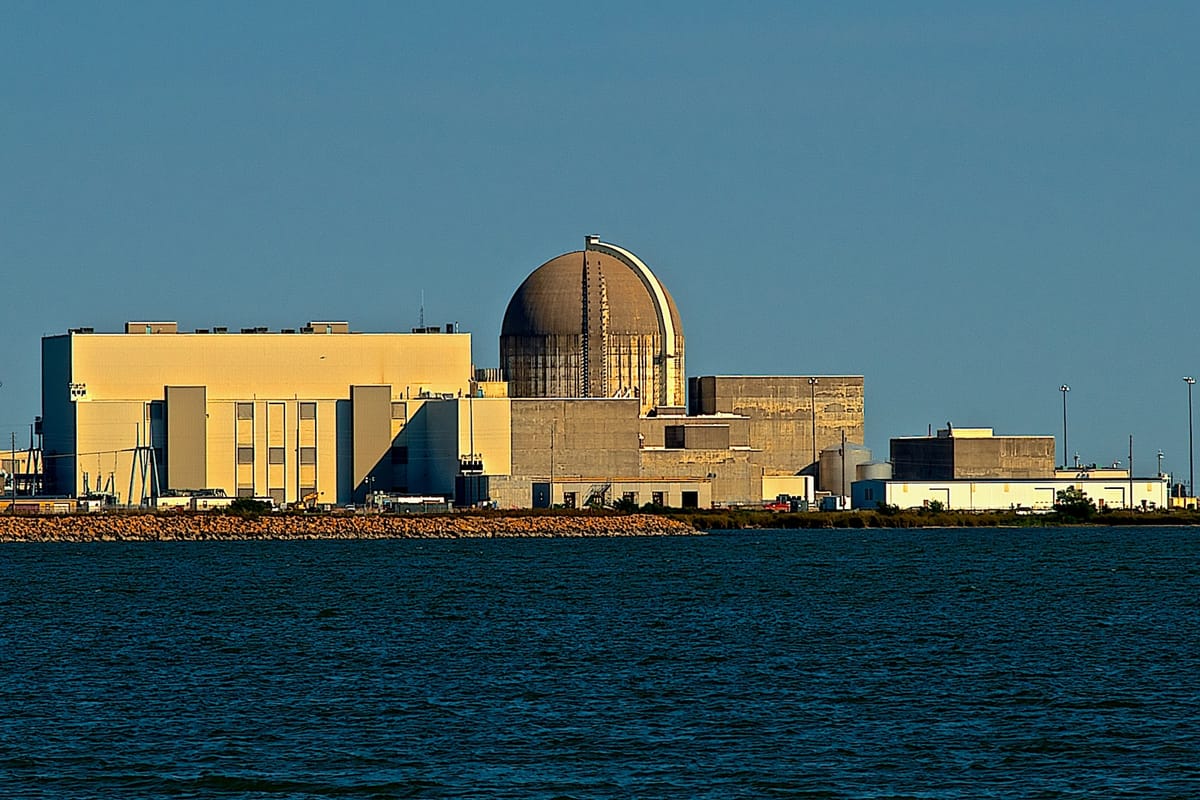

Diplomatic Push to Curb Iran’s Nuclear Ambitions
The United States, under President Donald Trump’s leadership, is taking a resolute stance on Iran’s nuclear program, with Secretary of State Marco Rubio emphasizing that Iran must abandon uranium enrichment to maintain a civilian nuclear program. Speaking on the Honestly with Bari Weiss podcast on April 23, Rubio declared, ‘If Iran wants a civil nuclear program, they can have one just like many other countries in the world have one. That is, they import enriched material.’ This condition reflects the administration’s commitment to preventing Iran from developing nuclear weapons while offering a path for peaceful energy production.
The Trump administration is intensifying diplomatic efforts, with a third round of talks with Iranian officials set for April 26 in Oman. Rubio stressed the preference for a peaceful resolution, stating, ‘If there is a chance of peace, we’re going to give peace and a peaceful resolution to this challenge every opportunity to succeed.’ This approach combines sanctions and the credible threat of force to pressure Iran into compliance, avoiding the need for military action.
Stakes of Iran’s Enrichment Activities
Iran’s ongoing uranium enrichment poses a significant challenge to these negotiations. The International Atomic Energy Agency (IAEA) has reported that Iran’s stockpile of uranium enriched to 60% purity, a level far beyond civilian needs, has reached 274.8 kilograms as of February 8. Rubio’s demand for zero enrichment aims to align Iran’s program with nations like the United Arab Emirates, which imports enriched uranium for its reactors, ensuring no risk of diversion to weapons development.
Rubio acknowledged the complexity of the talks, noting, ‘I would tell everybody that we’re a long ways away from any sort of agreement with Iran.’ The administration’s insistence on eliminating enrichment stems from concerns that Iran’s activities could destabilize the region, particularly threatening allies like Israel. The U.S. seeks to restore robust IAEA oversight, which has been limited since Iran restricted inspections in 2021.
Leadership in Negotiations
Leading the U.S. diplomatic effort is Middle East envoy Steve Witkoff, whom Rubio praised, saying, ‘We have good people negotiating.’ Witkoff’s team is tasked with securing a deal that ensures Iran cannot pursue nuclear weapons while allowing it to meet civilian energy needs. The administration’s strategy diverges from the 2015 Joint Comprehensive Plan of Action (JCPOA), which Trump withdrew from in 2018, citing its failure to address Iran’s broader regional influence.
The JCPOA had allowed Iran to enrich uranium to 3.67% and reduced its centrifuge count, but Iran has since escalated its enrichment activities. Rubio’s call for imported uranium reflects a stricter approach, aiming to eliminate any pathway to weaponization. The ongoing talks in Oman will test whether Iran is willing to accept these terms or continue its defiance.
Avoiding Conflict in a Volatile Region
The Trump administration is keenly aware of the risks of military escalation in the Middle East. Rubio warned, ‘Any military action at this point in the Middle East, whether it’s against Iran by us or anybody else, could in fact trigger a broader conflict.’ This caution underscores the U.S. commitment to diplomacy, with President Trump avoiding the war-driven policies of past administrations.
Rubio reiterated the administration’s stance against conflict, stating, ‘We do not want to see war. This is not a president who campaigned on starting wars.’ By prioritizing negotiations, the U.S. aims to achieve a stable outcome that protects national security interests and supports allies without resorting to force.
Historical Lessons and Future Oversight
Iran’s nuclear program has been a source of tension since 2002, when undeclared enrichment facilities were exposed at Natanz. The failure of the JCPOA to permanently curb Iran’s ambitions led to its collapse after the U.S. withdrawal, with Iran subsequently expanding its stockpile to 8,294.4 kilograms of enriched uranium. The Trump administration’s current policy seeks to address these shortcomings by enforcing stricter controls.
Effective IAEA monitoring is critical to any agreement. The agency’s role in verifying compliance will ensure that Iran adheres to restrictions on enrichment, providing transparency and accountability. Rubio’s vision of a civilian nuclear program reliant on imported fuel offers a practical model, reducing the risk of proliferation while meeting Iran’s energy demands.
The administration’s diplomatic efforts reflect a broader commitment to restoring American strength in foreign policy. By holding firm on enrichment, the U.S. aims to secure a deal that safeguards regional stability and prevents a nuclear-armed Iran, all while giving peace a chance to prevail.
Dues are $12 per year. Member benefits:
✅ Ad-Free Website Viewing
✅ Advocacy for Republican Seniors
✅ 120+ Senior Discounts
✅ Member Only Newsletters